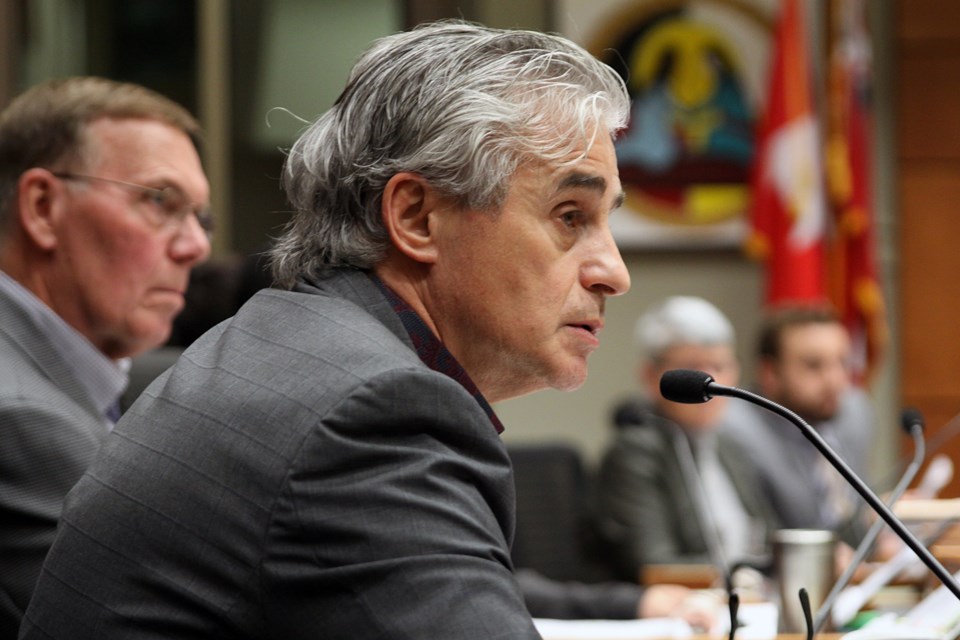THUNDER BAY – Mayor Bill Mauro has offered an update on the city’s response to a makeshift encampment at the County Fair Mall, saying the situation has prompted greater cooperation between local agencies.
Mauro first called a meeting in early September involving city staff, social service agencies, public health, and police to address what the city described as public health concerns over homeless people gathering at a derelict gas station in the mall’s parking lot.
The city later developed, then abandoned, a plan to fence off the station with police support, while outreach workers with agencies like Elevate NWO and Matawa connected some of those using the site with services.
City staff said the change of heart came after an outside agency secured new funding to support those sheltering in the area, but have not so far offered any further details on that plan.
The issue was put into stark relief when a man drove his truck over a tent at the encampment on Oct. 5. Police laid dangerous driving charges and continue to investigate.
In an update to city council, Mauro said the issue had prompted the city to develop a “city-community collaborative encampment response protocol” to support those identified as being without a home.
Agencies including NorWest Community Health Centres, police, the Thunder Bay Indigenous Friendship Centre, Lutheran Community Care, the Thunder Bay DSSAB, John Howard Society, the St. Joseph’s Care Group, Elevate NWO, Matawa, Nishnawbe Aski Nation, the Shelter House, the Ontario Native Women’s Association, and the Lakehead Social Planning Council have so far participated or expressed interest in developing the protocol, Mauro said.
“The objective of this ongoing work is to establish an effective and compassionate protocol that outlines roles and responsibilities agreed upon by all collaborating partners, which can be initiated when an encampment is identified in the community,” the mayor wrote in his update.
He emphasized that housing is not a municipal responsibility, but said the city could play a valuable coordinating role.
In a joint statement, the city’s Anti-Racism and Respect Committee and Diversity Thunder Bay applauded that collaborative approach, and said the local response must be guided by compassion.
“In recent weeks, homelessness in Thunder Bay has come to the forefront of public awareness with the escalating situation of the homeless encampment at County Fair,” they wrote. “Nobody wants to or should have to live in such an un-safe situation.”
“However, with emergency shelters close to capacity, restrictions on time an individual may spend in detox facilities, inadequate access to mental health and addiction supports and housing availability and affordability issues, there are some members of our community who feel they have no other options available to them.”
The groups pointed out that a 2018 point-in-time count found two-thirds of Thunder Bay's homeless population identified as Indigenous, saying that represented the "on-going impacts of colonial, structural and societal racism" and reinforced governments' responsibility to intervene with more supports.
The mayor has repeatedly called on federal and provincial governments to step up with additional funding, highlighting a proposal backed by numerous local agencies for a mental health and addictions crisis centre that would offer badly-needed beds and connections to a variety of services.
